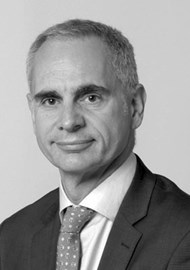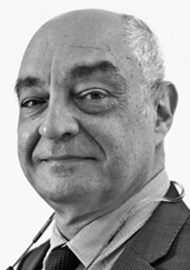Friends for a quarter of a century, Ricard Simo and Manuel Bernal-Sprekelsen caught up for a distanced chat about conferences, COVID and collaborations.
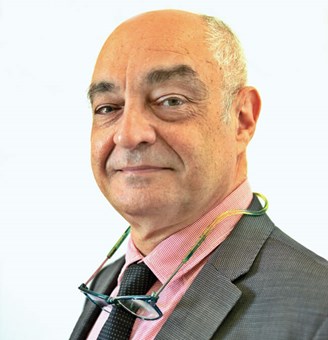
Manuel Bernal-Sprekelsen.
I remember meeting you for the first time in Budapest at the 1995 EUFOS Meeting. You were a young consultant and had just moved from Germany, where you trained, to Mallorca as a chief. Why and where did you train in Germany and how was your training?
I have lived for over 23 years in Germany and, over a period of 10 years, I worked as a trainee and consultant at three different institutions. I first did my military service at the Hospital in Giessen in the ENT department (I have two passports). Then I completed the four-year training at the University Hospital in Mainz (Head: Prof Jan Helms) and moved to the University Hospital in Bochum (Head: Prof Henning Hildmann) as a consultant and later senior consultant.
“In order to be able to do more surgeries, I took vacations out of season and kept working during summertime”
Training back then was pretty intensive. There were no European directives as regards to the number of working hours per week. The German training programme provides a long list of surgical procedures you need to have performed before passing an (oral) outcome exam at the local GMC. The ENT department in Mainz had five operating theatres running simultaneously, performing over 5000 thousand interventions annually. In order to be able to do more surgeries, I took vacations out of season and kept working during summertime. In 1992 I got the offer for Mallorca.
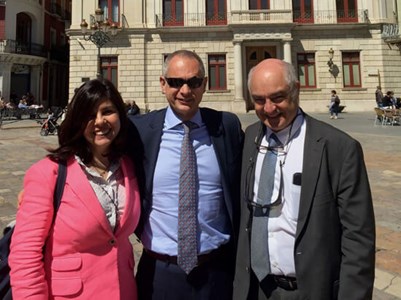
Dr Maria Foglia, Mr Ricard Simo and Professor Manuel Bernal-Sprekelsen
in 2016 at the Congress of the Societat Catalana of Otorhinolaryngology
and Head and Neck Surgery in Reus.
Moving from Germany to Spain must have been quite a shock in terms of the way that departments and the healthcare systems are run. What was the main difference between the German and the Spanish system of training and health?
Absolutely. First of all, the German system is very hierarchical. The head of the department decides, for example, on surgical indications, and senior consultants distribute the duties. That makes them also legally responsible. In Spain, consultants are responsible for their decisions. One of the biggest differences is wages. As Head of the ENT Department in Mallorca, I was making the same as a senior resident in Germany. That was quite of a shock and determines the type of complementary work necessary to improve income: most consultants in Spain have a private consultation in the afternoon.
Since a very early stage in your career, you have been involved in many scientific organisations. Could you summarise your trajectory and the cornerstones of your career in that regard?
Not exactly, it’s just that I appear to be younger than I am! Jokes apart, I started on the Board of the Spanish Society of ORL-HNS as President of International Relations, with representation in the UEMS ORL Section. From there, I promoted the creation of the European Academy of ORL-HNS (representing the subspecialty societies) and the merger with the former EUFOS (representing the national ENT societies) to constitute the current Confederation.
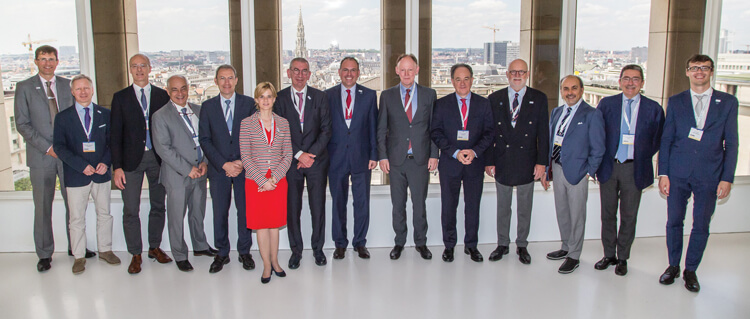
The Presidential Council of the 2019 Congress in Brussels.
What motivates you to get involved in those organisations in the first place and what is the most enjoyable part?
The stumbling block was to observe how an entity like the old EUFOS was only interested in organising events without worrying about educational issues. This led us to propose the creation of an academy within EUFOS. Everyone knows the story from there. Many members of the UEMS ORL Section welcomed the idea of an American-style academy. As a representative of the Spanish ENT Society in the UEMS ORL Section, I also had a lot of support from my scientific society. The rest is history. The most pleasant part was making friends and creating a great ENT family.
You have organised many symposia and conferences as part of your multiple presidencies in scientific societies. If you were to pick one that you are particularly proud of, which one would you choose and why?
I had the honour of directing our national meeting in 1996, but the greatest satisfaction was organising, in 2011, the first congress of the Confederation in Barcelona, with more than 3400 attendees. That was the first time we demonstrated that high-quality events, similar to those of the American Academy, could also be organised in Europe.
The COVID-19 pandemic has changed the landscape and the way that conferences will be held in the future. What are the good and bad things that the pandemic has brought in terms of medical education and conferences?
One advantage is almost universal access to education via webinars, at low or no cost. Many congresses have gone online, and all without loss of quality. However, the uncontrolled increase in webinars has led to a kind of saturation of the offer. We hardly have evaluation systems for webinars and, in the end, some will be lost in limbo because those who are potentially interested in e-learning will not know which one to choose.
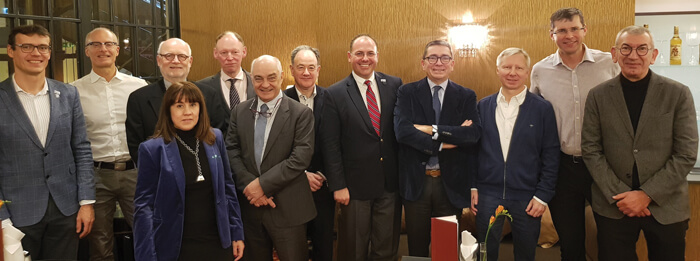
The last Presidential Council meeting, November 2019.
You have published over 215 papers in peer-reviewed journals and numerous books. What do you think is the value of textbooks in an era of online learning and what is the way forward in medical continuous professional development (CPD)?
In the future, the publication of articles in indexed and peer-reviewed journals will continue to be necessary to advance in all specialties, and therefore also in ORL-HNS. The incoming generations of specialists will have a greater tendency to consult their doubts online, either on YouTube or in online forums and publications. E-learning will definitely take over. But that doesn’t necessarily mean the (slow) disappearance of books, only that of printed books. As a matter of fact, apart from printed books, all publishers already offer the possibility of downloading chapters or entire books in PDF format, as well as links to explanatory video clips.
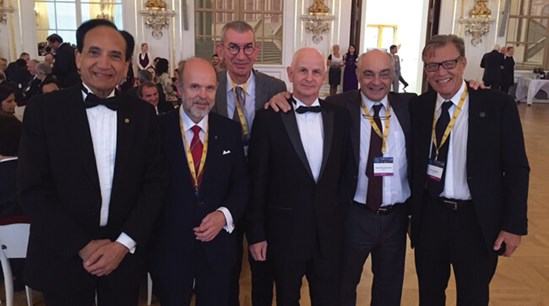
Prague 2015.
You and your team have made a bid to organise the IFOS Congress in 2025 in Malaga, Spain. Why have you chosen Malaga as a host city and not Barcelona or Madrid, which would have been the obvious choices?
Due to the pandemic, the 2021 IFOS meeting has been postponed to 2022. The IFOS Board has to decide at the end of this year whether the next congress will be held as usual in odd years (2025) or even years (2026). In world congresses the majority of participants come from the same continent. Since Madrid already organised the IFOS World meeting back in 1989, and Barcelona hosted two European congresses recently, the idea was to offer another vision of the country by presenting Malaga.
“My maxim that I try to convey to my residents is very simple: always treat patients as if they were your family member”
The city of Malaga met all the conditions to be a candidate: an airport with national and international connections, a train station with high-speed train connections, a conference centre with all the required spaces and enough hotels at very competitive prices, both in the same city as well as in Marbella or Torremolinos. In addition, Malaga has a magnificent culinary offer and an incomparable guarantee of sunny weather.
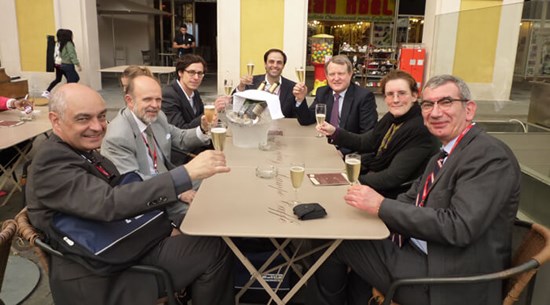
The board of the European Academy after the 2013 congress in Nice, France.
If you were to give advice to the young otorhinolaryngologist generation, what would it be?
All training, and even more so in medicine, requires a very high dedication. That dedication does not end with the residency programme, but continues until retirement. My maxim that I try to convey to my residents is very simple: always treat patients as if they were your family member. Modern medicine has been increasingly bureaucratised by masking its true practice. That won’t get any better in the future, so better accept it.

